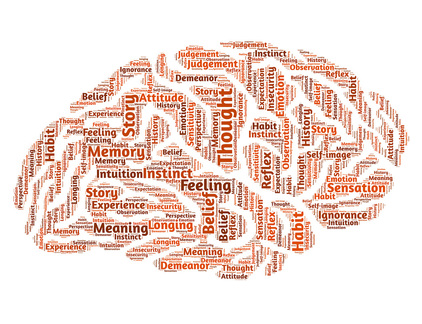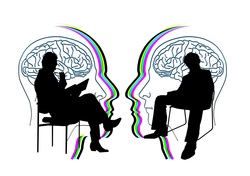|
I approach each client with the assumption that they are coming to me with an intention to alleviate some discontentment or suffering. I see my job as helping the client articulate their reasons for seeking therapy, to understand the source of their presenting issues (whether internal, external, or some combination thereof) and to find strategies that bring relief.
I have been working professionally with members of the LGBT community for over two decades, with particular sensitivity to issues such as self acceptance and coming out, reconciling external and internalized homophobia, gender identity, gender expression, and gender transitioning. I have worked with many people who are questioning their same sex desires or behaviors, who may or may not identify as lesbian or gay, and who have been—or currently are in—relationships. |
|
Much of my career has been spent in treating those who suffer from addictions and other compulsive behaviors, including all areas of substance abuse, gambling, and sexual compulsivity, as well as treating those who are dually diagnosed with compulsivity problems and another psychiatric condition like depression or anxiety.
One final area of focus is my interest in working with polyamorous individuals. I have learned much from the poly community, particularly about the sophisticated and careful consideration of boundaries and agreements that make poly relationships flourish and thrive.
My style tends to be very interactive and engaging, with an emphasis on caring and supportive feedback throughout the process. I expect the client to establish the agenda for each session, having faith that the client knows best what needs to be addressed in any given session. I emphasize psychoeducation about the role of, and differences between, thoughts, feelings and behaviors.
My theoretical orientation can be described as Integral, an approach that’s based on the work of the American philosopher Ken Wilber. From the Integral Institute web site, Integral theory can be describes as:
“an all-inclusive framework that draws on the key insights of the world’s greatest knowledge traditions. The awareness gained from drawing on all truths and perspectives allows the Integral thinker to bring new depth, clarity, and compassion to every level of human endeavor—from unlocking individual potential to finding new approaches to global-scale problems.”
My work is further informed by Buddhist philosophy and psychology, not just in theory, but also in practice. I have had a daily meditation practice for more than twenty years and I apply mindfulness, to the greatest extent possible, to every moment.
One final area of focus is my interest in working with polyamorous individuals. I have learned much from the poly community, particularly about the sophisticated and careful consideration of boundaries and agreements that make poly relationships flourish and thrive.
My style tends to be very interactive and engaging, with an emphasis on caring and supportive feedback throughout the process. I expect the client to establish the agenda for each session, having faith that the client knows best what needs to be addressed in any given session. I emphasize psychoeducation about the role of, and differences between, thoughts, feelings and behaviors.
My theoretical orientation can be described as Integral, an approach that’s based on the work of the American philosopher Ken Wilber. From the Integral Institute web site, Integral theory can be describes as:
“an all-inclusive framework that draws on the key insights of the world’s greatest knowledge traditions. The awareness gained from drawing on all truths and perspectives allows the Integral thinker to bring new depth, clarity, and compassion to every level of human endeavor—from unlocking individual potential to finding new approaches to global-scale problems.”
My work is further informed by Buddhist philosophy and psychology, not just in theory, but also in practice. I have had a daily meditation practice for more than twenty years and I apply mindfulness, to the greatest extent possible, to every moment.
Individual PsychotherapyAt the most superficial level, individual therapy is nothing more than a conversation between two people, with particular emphasis and focus on one of the two individuals. And yet, at the same time, it’s so much more than that. Therapy provides you an opportunity to show yourself to another person as you answer questions and respond to reflections and interpretations. In so doing, you come to know yourself better and understanding the unconscious dynamics that contribute to your life being what it is. It is only then that you can apply that insight towards making the changes in those areas of your life that ultimately brought you to therapy in the first place.
|
Case Consultation/Supervision
For therapists who have questions about particular issues that I might have some experience with, I am happy to consult with you about specific cases. I also welcome new clinicians who need supervisory hours for licensure. I am a Certified Clinical Supervisor through MaMHCA, certification #MaCCS 0038.
|



